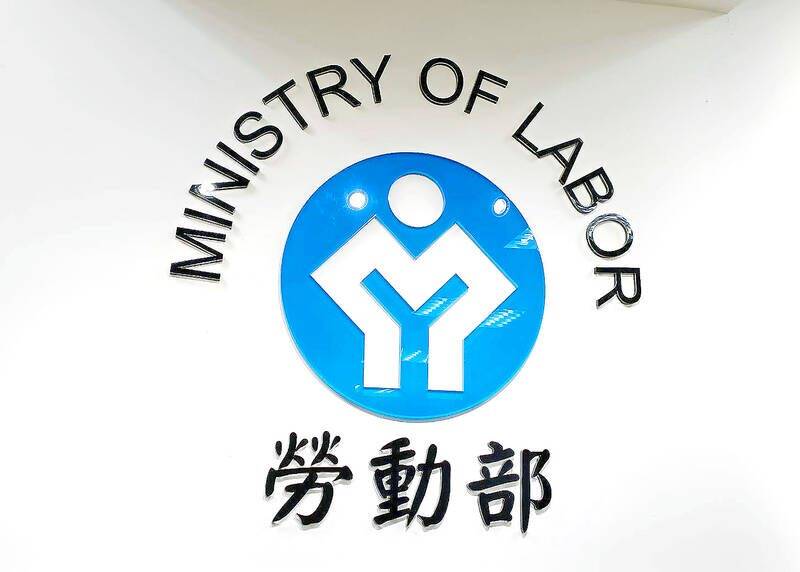The Ministry of Labor (MOL) on Thursday said that it plans to eliminate its quota limit and points system to allow more foreign and overseas compatriot students to stay and work in Taiwan after graduation.
In a special report submitted to the Legislative Yuan’s Social Welfare and Environmental Hygiene Committee, the ministry said that it intends to review and amend regulations to eliminate the quota limit and evaluation points system for foreign and overseas compatriot students.
It is also deliberating introducing a specific work permit for the students, it added.

Photo: Lee Ching-hui, Taipei Times
Su Yu-kuo (蘇裕國), head of the Cross-Border Workforce Management Division within the ministry’s Workforce Development Agency said that under the current system, individuals have to be employed in one of 15 designated specialized occupations, and must also accumulate at least 70 points across eight criteria before their inclusion in the quota system would be considered.
The ministry established the points system in 2014. The evaluation criteria include educational background, salary, work experience and proficiency in Mandarin.
Employers also need to have capital of at least NT$5 million (US$153,563) or annual revenue of NT$10 million or above to meet the standard.
Su said that due to demographic changes, labor shortages and gaps in different industries, the Taiwan Confederation of Trade Unions previously recommended prioritizing the retention of foreign and overseas compatriot students.
However, neither the Employment Service Act (就業服務法) nor Article 51 of the Recruitment and Employment of Foreign Professionals (外國專業人才延攬及僱用法) specify foreign and overseas compatriot students in its work permit system.
Su added that the current system of increasing the quota every year is not effective given there are about 12,000 foreign and overseas compatriot students graduating annually.
Discussions are to be held with the National Development Council, Ministry of Education, Overseas Community Affairs Council (OCAC), and others regarding eliminating the quota adjustment, Su said.
Eliminating quota restrictions would provide foreign and overseas compatriot students with greater assurance during their studies and increase their inclination to remain and work in Taiwan, he added.
On the OCAC Web site, the term “overseas compatriot student” is defined as a student of Chinese/Taiwanese descent who has come to Taiwan to study, who was born and raised overseas, or who has been living overseas for six or more consecutive years and obtained permanent or long-term residency status overseas.
The term “overseas” refers to countries or regions other than Taiwan, China, Macau and Hong Kong, it says.

A magnitude 4.9 earthquake struck off Tainan at 11:47am today, the Central Weather Administration (CWA) said. The hypocenter was 32.3km northeast of Tainan City Hall at a depth of 7.3km, CWA data showed. The intensity of the quake, which gauges the actual effect of a seismic event, measured 4 in Tainan and Chiayi County on Taiwan's seven-tier intensity scale, the data showed. The quake had an intensity of 3 in Chiayi City and County, and Yunlin County, while it was measured as 2 in Kaohsiung, Nantou County, Changhua County, Taitung County and offshore Penghu County, the data showed. There were no immediate reports of

‘DENIAL DEFENSE’: The US would increase its military presence with uncrewed ships, and submarines, while boosting defense in the Indo-Pacific, a Pete Hegseth memo said The US is reorienting its military strategy to focus primarily on deterring a potential Chinese invasion of Taiwan, a memo signed by US Secretary of Defense Pete Hegseth showed. The memo also called on Taiwan to increase its defense spending. The document, known as the “Interim National Defense Strategic Guidance,” was distributed this month and detailed the national defense plans of US President Donald Trump’s administration, an article in the Washington Post said on Saturday. It outlines how the US can prepare for a potential war with China and defend itself from threats in the “near abroad,” including Greenland and the Panama

The Chinese Nationalist Party (KMT) is maintaining close ties with Beijing, the Democratic Progressive Party (DPP) said yesterday, hours after a new round of Chinese military drills in the Taiwan Strait began. Political parties in a democracy have a responsibility to be loyal to the nation and defend its sovereignty, DPP spokesman Justin Wu (吳崢) told a news conference in Taipei. His comments came hours after Beijing announced via Chinese state media that the Chinese People’s Liberation Army’s Eastern Theater Command was holding large-scale drills simulating a multi-pronged attack on Taiwan. Contrary to the KMT’s claims that it is staunchly anti-communist, KMT Deputy

RESPONSE: The government would investigate incidents of Taiwanese entertainers in China promoting CCP propaganda online in contravention of the law, the source said Taiwanese entertainers living in China who are found to have contravened cross-strait regulations or collaborated with the Chinese Communist Party (CCP) could be subject to fines, a source said on Sunday. Several Taiwanese entertainers have posted on the social media platform Sina Weibo saying that Taiwan “must be returned” to China, and sharing news articles from Chinese state media. In response, the Mainland Affairs Council (MAC) has asked the Ministry of Culture to investigate whether the entertainers had contravened any laws, and asked for them to be questioned upon their return to Taiwan, an official familiar with the matter said. To curb repeated